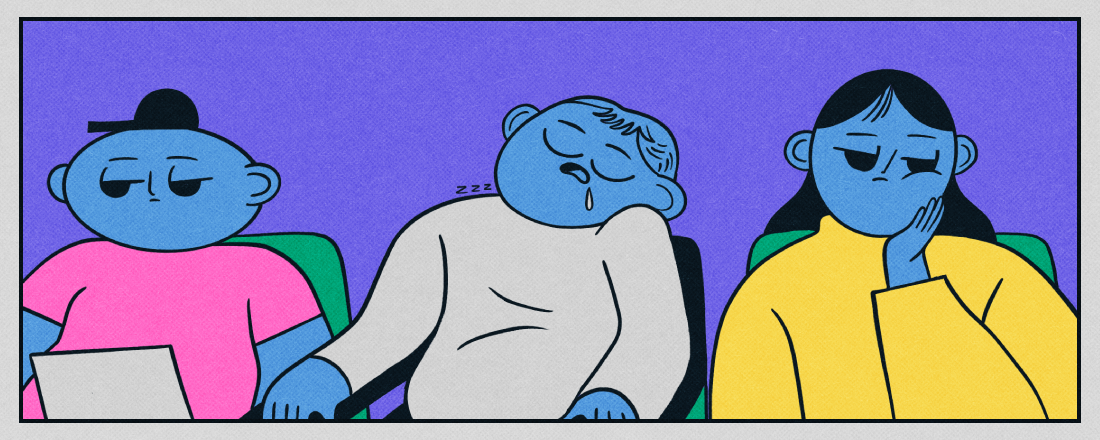
With how many general requirement courses are needed to graduate, it’s no wonder that a lot of third and fourth-year students — including myself — still haven’t gotten around to taking that mandatory introductory English class. But maybe we shouldn’t have to.
When I discovered that all of my classes were remote this term, I thought it would be the perfect opportunity to finish the general requirement courses for my degree. I wanted to save the classes I found more interesting or relevant to my major for when in-person activities resume.
However, I am just now realizing that there was a flaw in my thinking. The semester is coming to an end and I am now left studying for classes that I find excruciatingly boring.
Perhaps it’s my fault for viewing general requirement classes as a laundry list of irrelevant courses, or maybe it’s time to reconsider degree requirements altogether.
I think a university education would be more worthwhile if majoring in one subject wasn’t so contingent upon taking multiple classes in another, completely unrelated subject.
Take, for example, completing a bachelor’s degree at the University of Saskatchewan. No matter what your major is, all students are required to take certain courses.
If you’re majoring in biochemistry, you’ll need to take at least one social sciences course, such as anthropology or linguistics. And if you’re majoring in sociology, you’ll need to take a science course, such as physics.
But why?
After all, I think a student majoring in the liberal arts isn’t going to find much use in knowing how to calculate the average velocity of an object.
It’s been argued that general requirement courses broaden your scope of knowledge and promote critical thinking skills. They are meant to be an opportunity to change the way students think by exposing us to different fields of study.
But shouldn’t it be up to us, the students, whether or not we want to branch out and take a class unrelated to our major?
While I completely understand the relevance of requiring students to take a class like Indigenous Studies — which is relevant regardless of your major — I don’t see why a university-level calculus course is necessary for most students not majoring in math.
However, some students enjoy the exposure that general requirement courses provide, using them as an opportunity to explore their options before declaring a major. But for those of us who already know what we want to study, the choice should be ours whether we want to take an unrelated course.
To obtain a four-year degree requires the completion of 40 classes, with up to two-thirds of those classes being general requirement courses. For example, a four-year bachelor of arts degree in philosophy only requires a student to take 12 philosophy classes.
Other students I know also agree that a student’s interest in their chosen major should not be bound by general requirement courses that seek only to develop introductory-level skills in unrelated subjects.
Only 66.8 per cent of full-time first-year students at the U of S who started in the fall of 2007 graduated by 2014. This means they were not able to complete their program within 150 per cent of the expected time — for example, within six years of a four-year degree.
Less than half of the undergraduate students in Canada complete their degree within four years.
If a university education was more focused on a student’s chosen major — similar to how technical schools such as Saskatchewan Polytechnic operate — then university students would be more likely to finish their program of choice on time.
As a third-year student, general requirement courses are some of the most demanding and challenging classes I have ever taken. Plus, it is usually difficult to stay motivated and do well in a class that doesn’t interest you, placing students in stressful situations that take time away from studying for a class that they may find more enjoyable.
Not to mention these classes also cost money, with some undergraduate courses at the U of S costing upwards of $1,500 for domestic students and even more for international students.
It’s not unreasonable, then, to assume that so many students drop out of university in favour of completing a shorter, more to-the-point program at a technical school.
That’s why it’s time to reconsider degree requirements.
—
This op-ed was written by a University of Saskatchewan undergraduate student and reflects the views and opinions of the writer. If you would like to write a reply, please email opinions@thesheaf.com. Jakob is a third-year undergraduate student studying physiology and pharmacology, and the staff writer at The Sheaf Publishing Society.
Graphic: Jaymie Stachyruk | Graphics Editor
Leave a Reply